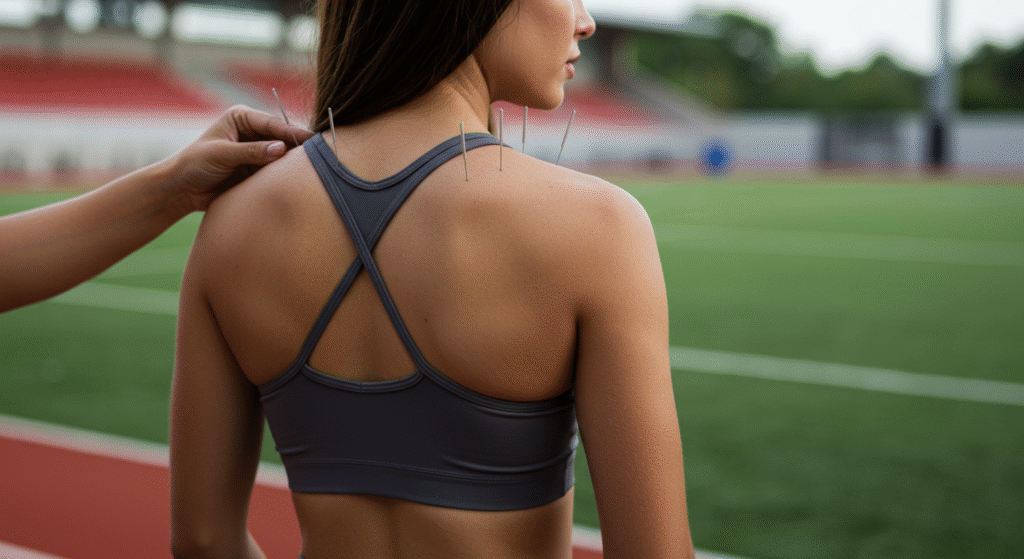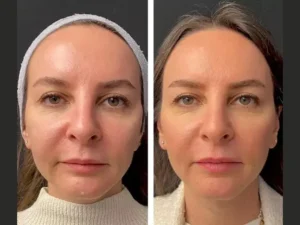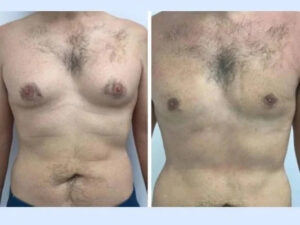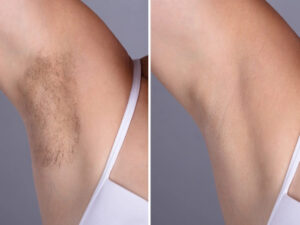
Introduction
In the world of sports, every advantage matters. Athletes push their bodies to the limit, striving for peak performance while minimizing the risks of injury and burnout. Traditional recovery methods such as rest, ice baths, and physiotherapy are essential, but more professionals are turning to holistic solutions to enhance performance and healing. One such approach is acupuncture for athletes that supports both the body and mind.
This article explores how acupuncture benefits athletes by improving muscle recovery, reducing injury risk, and enhancing overall performance. Grounded in both scientific evidence and centuries-old practice, acupuncture is proving to be an invaluable tool for modern athletes.
The Growing Interest in Holistic Recovery for Athletes
Athletes, from weekend warriors to Olympians, are increasingly exploring integrative medicine. Recovery isn’t just about physical healing; it’s about maintaining balance in energy systems, mental focus, and long-term resilience. Acupuncture for athletes fits seamlessly into this model, offering a natural, drug-free method to boost performance while accelerating recovery.
What Is Acupuncture?
Acupuncture is a core component of Traditional Chinese Medicine (TCM), practiced for over 2,500 years. It involves inserting fine, sterile needles into specific points on the body (meridians) to balance energy flow, or Qi.
From a modern biomedical perspective, acupuncture works by:
- Stimulating nerves, muscles, and connective tissues
- Increasing blood circulation
- Triggering the release of endorphins and anti-inflammatory compounds
- Activating the parasympathetic nervous system for recovery and relaxation
This blend of traditional wisdom and modern science explains why acupuncture for athletes has gained so much traction in sports medicine.
The Benefits of Acupuncture for Athletes
1. Enhanced Muscle Recovery
After intense training, muscle fibers break down and require repair. Acupuncture increases circulation, delivering oxygen and nutrients to muscles while clearing metabolic waste such as lactic acid. This speeds up recovery and reduces post-exercise soreness.
2. Pain Management Without Drugs
Pain management is critical for athletes, yet relying heavily on NSAIDs or painkillers carries risks. Acupuncture offers a natural alternative, releasing endorphins that relieve pain while targeting inflammation at its root.
3. Improved Flexibility and Range of Motion
Stiff muscles and tight fascia can hinder athletic performance. Acupuncture relaxes muscle tension, improves joint mobility, and helps prevent strain, keeping athletes in peak condition.
4. Injury Prevention and Healing
Micro-injuries from repetitive motion can progress into chronic issues. Acupuncture for athletes not only accelerates healing from sprains, strains, and tendonitis but also helps prevent injuries by maintaining muscle balance and circulation.
5. Mental Focus and Stress Reduction
Sports aren’t only physical — mental clarity and focus are essential. Acupuncture calms the nervous system, lowers cortisol levels, and promotes mental resilience. Many athletes report improved sleep and reduced anxiety, both critical for peak performance.
Scientific Evidence Supporting Acupuncture
Numerous studies support the efficacy of acupuncture for athletes:
- A 2018 review in the Journal of Pain Research found acupuncture effective for musculoskeletal pain, making it valuable for athletes recovering from injuries.
- Research published in Evidence-Based Complementary and Alternative Medicine shows acupuncture reduces delayed onset muscle soreness (DOMS), speeding recovery after strenuous exercise.
- Elite sports teams, including those in the NBA, NFL, and Olympic programs, increasingly incorporate acupuncture as part of their medical and recovery strategies.
While more large-scale studies are needed, the existing evidence underscores acupuncture’s potential to enhance sports performance and recovery.
Acupuncture in Sports Performance Programs
Athletes typically integrate acupuncture into their training cycles in several ways:
- Pre-Competition: To improve circulation, relax muscles, and calm nerves.
- Post-Training: To accelerate muscle recovery and reduce soreness.
- Injury Rehab: To promote faster healing and reduce reliance on medication.
- Off-Season Care: To maintain overall balance and prevent chronic issues.
Some athletes even use acupuncture as a regular maintenance therapy, keeping their bodies finely tuned throughout the year.
Combining Acupuncture with Other Recovery Techniques
The power of acupuncture for athletes often lies in its synergy with other treatments:
- Physical therapy: Acupuncture enhances muscle relaxation, making rehabilitation more effective.
- Massage therapy: Together, they reduce tension and promote circulation.
- Nutrition: When paired with a recovery-friendly diet, acupuncture helps optimize muscle repair and hormonal balance.
- Sleep optimization: By promoting relaxation, acupuncture improves sleep quality, essential for recovery.
What to Expect in an Acupuncture Session for Athletes
Athletes new to acupuncture often wonder what treatment feels like. Here’s a typical process:
- Assessment – Practitioner evaluates training load, injuries, and overall health.
- Needle Placement – Fine needles are inserted into strategic points related to the musculoskeletal system.
- Relaxation Phase – Athletes often feel calm or even energized after treatment.
- Recovery Plan – Regular sessions may be scheduled depending on goals (e.g., recovery vs. injury rehabilitation).
Most athletes experience noticeable improvements in pain, range of motion, or recovery time after just a few sessions.
Safety and Considerations
Acupuncture is generally safe when performed by licensed practitioners. Side effects are rare and mild, such as slight bruising or soreness. Athletes should:
- Choose a certified acupuncturist experienced in sports medicine.
- Communicate openly about injuries, training schedules, and goals.
- Use acupuncture as a complement, not a replacement, for conventional medical care.
The Future of Acupuncture in Sports Medicine
With growing interest in integrative care, acupuncture is increasingly recognized as a legitimate, evidence-supported therapy in athletic recovery. Sports teams, trainers, and rehabilitation centers are embracing it not as an alternative, but as an essential complement to modern performance care.
Conclusion
For athletes, performance isn’t just about strength or speed — it’s about recovery, balance, and long-term health. Acupuncture for athletes offers a powerful, holistic tool to accelerate healing, manage pain naturally, and enhance both physical and mental resilience.
Whether you’re a professional competitor or a recreational runner, acupuncture can be the key to unlocking peak performance and sustainable athletic success.
As evidence grows and more athletes share their success stories, it’s clear that acupuncture for athletes is more than a trend — it’s a proven strategy for optimizing sports performance and muscle recovery.



